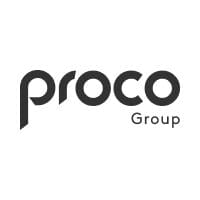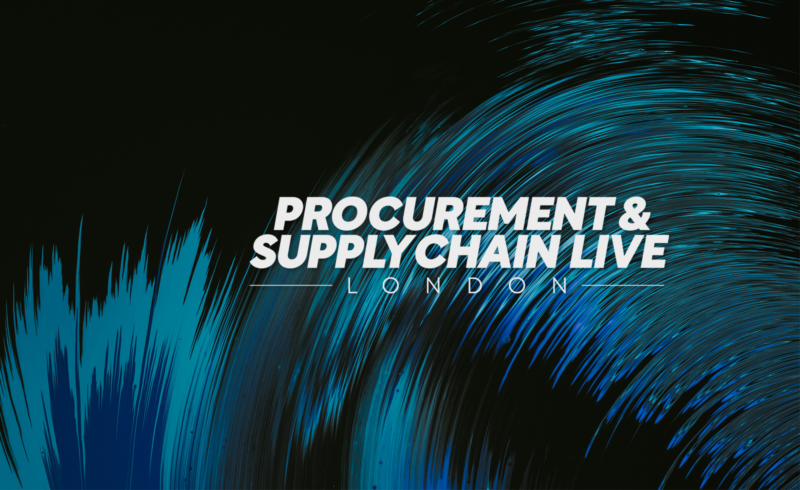Elevating Procurement and Talent Dynamics
The Procurement & Supply Chain LIVE conference, held in London in September, focused on vital trends, challenges, and opportunities for growth in procurement.
In this article we share key takeaways from the conference, as well as talent considerations organisations should consider implementing across procurement, DEI and technology.
Procurement Functions are at the Forefront
Procurement is moving to the forefront, gaining visibility as a critical business function – a point David Kern, Vice President, Global Procurement at TripAdvisor Group, addressed in his keynote on day 1.
Traditionally seen as a necessary step to “go through”, procurement has more recently been emerging as a strategic partner with vast oversight across the business. This shift creates both opportunities and challenges, especially for procurement teams looking to be proactive.
The Shift in Focus:
Like internal audit processes and Six Sigma functions that rose to prominence in previous years, procurement is now taking the spotlight. This shift requires procurement professionals to understand more than just their function—they need to know the entire business to truly add value.
Talent consideration: Hiring in procurement needs to evolve – teams should be composed of individuals with cross-functional knowledge and strategic foresight. Professionals who can anticipate changes and react proactively will be highly sought after. Those with a blend of commercial acumen and data analytics skills will become even more essential as procurement continues to move “up the funnel.”
Collaboration Over Control:
While procurement does not need to control every aspect of a project, it must remain informed. The emphasis here is on working collaboratively with other functions under a “better together” mentality.
Talent consideration: Look for professionals who excel in relationship-building and can foster trust across departments. Procurement talent will increasingly need strong interpersonal and communication skills to effectively integrate into broader enterprise commercial strategies.
Business Case Mastery:
Teams should be equipped to create concise business cases that answer key questions. In TripAdvisor’s case, their business cases must answer 5 questions:
- What is the project?
- Why is it being done?
- When will it be completed?
- What are the dependencies?
- What is the ROI?
Talent consideration: Training procurement professionals in business case development will be crucial for attracting and retaining top-tier talent. Those who can translate procurement’s value into measurable outcomes will stand out in the hiring process.
Women Face Both Opportunities and Challenges in Procurement
A significant highlight of the conference was the Women in Procurement panel, which shed light on the importance of gender diversity and the barriers women face in advancing to senior roles.
Breaking Through the Glass Ceiling:
While more women are starting their careers in procurement, they often face barriers as they progress. For women to succeed, it’s vital they articulate their aspirations clearly and actively build a strong professional network.
Talent consideration: Companies looking to attract and retain female talent in procurement must focus on offering mentorship, sponsorship, and visibility-enhancing projects. Organisations that provide opportunities for professional development and ensure a clear path to leadership will stand out to top female candidates.
Mentorship and Sponsorship:
While mentorship is essential, sponsorship can be a game-changer. Encouraging women to embrace projects that boost visibility and confidence is key. Flexible policies for parents and equal pay initiatives are also crucial in building diverse and inclusive teams from the ground up.
Talent consideration: Organisations should not only invest in mentoring programs but also foster environments where women can take on leadership roles and be recognised for their contributions.
Inclusion in Action:
Diversity is more than a hiring metric; it’s about creating an inclusive workplace where all voices are heard. The panel emphasised that organisations should extend these initiatives across the supply chain, influencing suppliers and partners to foster diversity.
Talent consideration: When hiring, organisations that visibly commit to gender balance, pay equity, and inclusion from the start of the employee lifecycle will be more attractive to talent seeking inclusive workplaces.
The Role of AI in Procurement and Supply Chain
The discussion on AI in procurement highlighted both the potential and the hurdles that teams face in adopting emerging technologies. AI is seen as a tool that can revolutionise procurement, but only if approached correctly.
Not Just Technology, But Strategy:
AI is still in its early stages, and procurement teams should first identify what problems they need AI to solve before jumping into adoption. Data accuracy is paramount; without it, AI cannot deliver results.
Talent consideration: Procurement professionals who understand AI and data analytics will be in high demand. As AI matures, the skillsets required in procurement will shift toward those with strong problem-solving abilities, a keen eye for data, and the ability to make data-driven decisions. Talent strategies should therefore focus on upskilling and reskilling teams to keep up with technological advancements.
The Human Element in AI:
Despite its potential, AI will never replace human judgment entirely. As AI tools become more sophisticated, the role of procurement teams will evolve to focus on interpreting data, building better relationships, and making informed decisions.
Talent consideration: Organisations should look for candidates with a blend of technical and soft skills. Individuals who can leverage AI to enhance procurement operations, while maintaining strong human-centric decision-making capabilities, will be pivotal to success.
Conclusion
The conference underscored the rapidly changing landscape of procurement and its expanding role within organisations. To thrive in this evolving space, businesses must not only adapt to technological innovations like AI but also build diverse, inclusive teams that foster collaboration and strategic thinking.
For hiring managers and talent professionals, the focus will increasingly be on attracting individuals who combine data literacy, cross-functional collaboration, and leadership capabilities—essential qualities for the future of procurement.
For a discussion about your hiring and DEI strategies, please don’t hesitate to get in touch.




